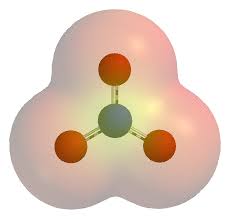ion

n. [化学] 离子
n. (Ion)人名;(罗、摩尔)扬;(丹)约恩
n.
离子;
变形
复数:ions
英英释义
ion[ 'aiən ]
n.a particle that is electrically charged (positive or negative); an atom or molecule or group that has lost or gained one or more electrons
词组短语
ion exchange离子交换
metal ion金属离子
ion beam离子束
ion implantation离子注入
ion exchange resin离子交换树脂(多孔合成树脂的总称)
negative ion阴离子
lithium ion battery锂离子电池
ion concentration离子浓度
chloride ion[化]氯根离子
ion source[物]离子源
positive ion阳离子;正离子
ion plating离子电镀
ion channel离子通道
heavy metal ion重金属离子
ion current离子电流;离子流;离子束
copper ion铜离子
ion exchanger[化]离子交换剂
ion trap离子阱
hydrogen ion氢离子
ferric ion铁离子;高铁离子
双语例句
用作名词(n.)
Both of these particles can produce ion pairs.
这两种粒子都能产生离子对。
The crystals were cleaned by argon ion bombardment.
结晶体由氩离子轰击而净化。
权威例句
Ion channels of excitable membranesThe Glutamate Receptor Ion Channels
The glutamate receptor ion channels.
The Stopping and Ranges of Ion in Solids
Glutamate receptor ion channels: structure, regulation, and function.
Cloning and characterization of a mammalian proton-coupled metal-ion transporter.
The capsaicin receptor: a heat-activated ion channel in the pain pathway.
Methods for the isolation of glycolytic intermediated by column chromatography with ion exchange resins.
The Role of Metal Ion Dopants in Quantum-Sized TiO2: Correlation between Photoreactivity and Charge Carrier Recombination Dynamics
Theoretical studies of enzymic reactions: dielectric, electrostatic and steric stabilization of the carbonium ion in the reaction of...
ion (n.)
1834, introduced by English physicist and chemist Michael Faraday (suggested by the Rev. William Whewell, English polymath), coined from Greek ion, neuter present participle of ienai "go," from PIE root *ei- (1) "to go, to walk" (cognates: Greek eimi "I go;" Latin ire "to go," iter "a way;" Old Irish ethaim "I go;" Irish bothar "a road" (from *bou-itro- "cows' way"), Gaulish eimu "we go," Gothic iddja "went," Sanskrit e'ti "goes," imas "we go," ayanam "a going, way;" Avestan ae'iti "goes;" Old Persian aitiy "goes;" Lithuanian eiti "to go;" Old Church Slavonic iti "go;" Bulgarian ida "I go;" Russian idti "to go"). So called because ions move toward the electrode of opposite charge.
1. Both of these particles can produce ion pairs.
这两种粒子都能产生离子对。
-- 来源 -- 英汉 - 辞典例句
2. Any ion electrostatically bound to the exchanger is referred to as counterion.
靠静电引力结合在交换剂上的离子,叫做平衡离子。
-- 来源 -- 英汉 - 辞典例句
3. It will be more susceptible to attack by hydroxyl ion.
它更容易被羟基离子所作用。
-- 来源 -- 英汉 - 辞典例句
4. Formation of an alkyl ion occurs according to reactions.
按照反应式生成烷基离子。
-- 来源 -- 英汉 - 辞典例句
5. An ion may be noticeably displaced from its lattice position.
离子都可能显著地偏离它的位置。
-- 来源 -- 英汉 - 辞典例句
6. The crystals were cleaned by argon ion bombardment.
结晶体由氩离子轰击而净化。
-- 来源 -- 英汉 - 辞典例句
7. A measure of polarising power is the field strength of an ion.
极化能力的度量单位是离子的场强。
-- 来源 -- 英汉 - 辞典例句
8. Epoxides, episulphides and ethylene imines also polymerize via similar cyclic onium ion mechanisms.
环氧化合物,环硫化合物和乙烯亚胺也可以按类似于环氧?睦胱拥幕?理进行聚合。
-- 来源 -- 英汉 - 辞典例句
9. Higher salt concentrations alone may inhibit ion uptake.
单单只是盐浓度高就会阻碍离子吸收。
-- 来源 -- 英汉 - 辞典例句
10. The principal aqueous forms of arsenic are the arsenite ion(As ??and the arsenate ion(As??.
砷在液体中的主要形态是亚砷酸离子(As?眩┖蜕樗崂胱樱?s?遥??/UK>
-- 来源 -- 英汉 - 辞典例句
